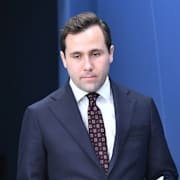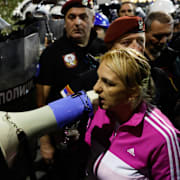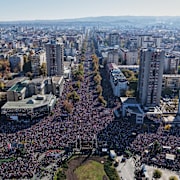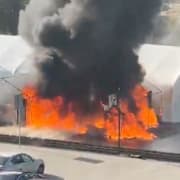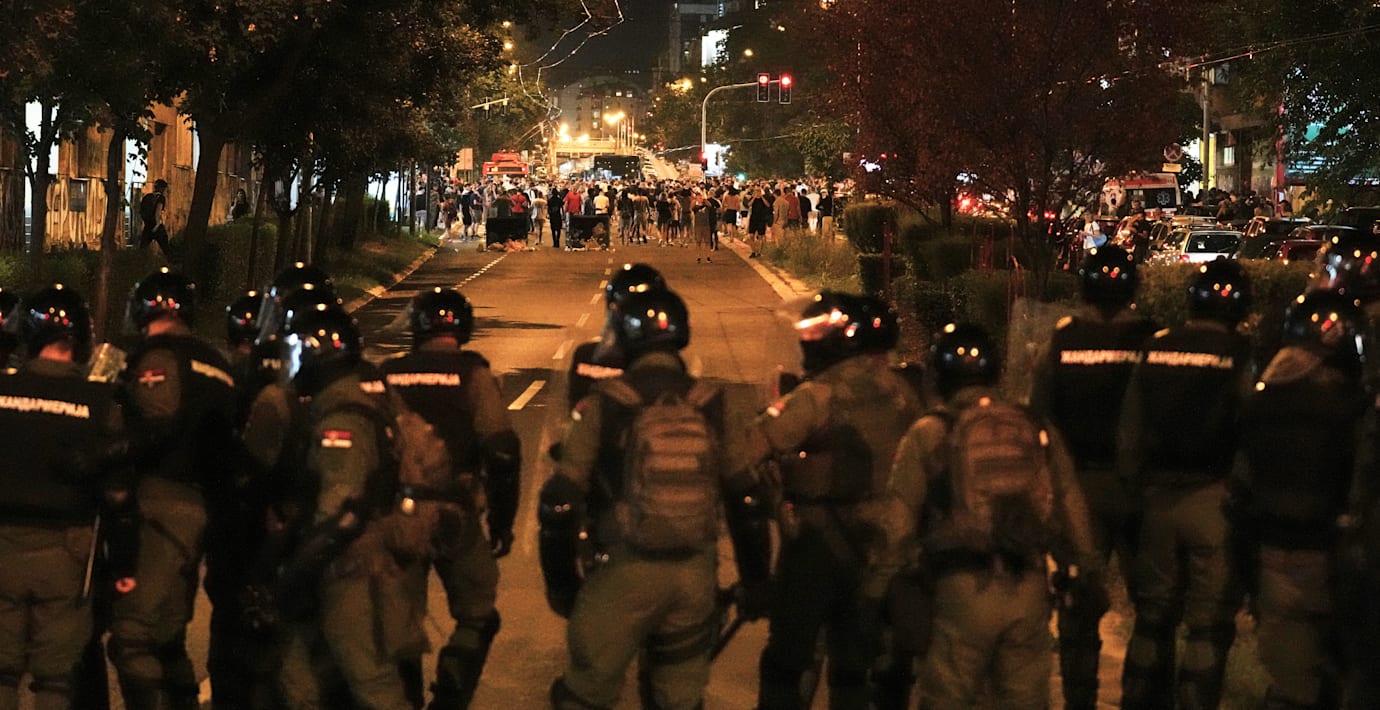
Vucic öppnar för samtal – oppositionen kritisk
Serbiens president Aleksandar Vucic uppmanar till dialog mellan regeringen och de regimkritiska demonstranterna som har protesterat sedan november förra året. I ett direktsänt tal till nationen uppger Vucic att han vill lösa konflikten ”genom dialog och samtal” och inte våld.
– Vi måste bygga upp landet igen och ta oss tillbaka till hur vi hade det för nio månader sedan, säger han enligt Reuters.
De stora protesterna har ofta varit fredliga, men tidigare i augusti skadades flera poliser och demonstranter i samband med oroligheter. Oppositionen avfärdar Vucics uttalande om samtal.
– En president som tar till våld är inte någon man kan föra politiska samtal med, säger ledaren Savo Manojlovic.
bakgrund
Aleksandar Vucic
Wikipedia (en)
Aleksandar Vučić (born 5 March 1970) is a Serbian politician serving as President of Serbia since 2017. A founding member of the Serbian Progressive Party (SNS), he previously served as President of the SNS from 2012 to 2023, First Deputy Prime Minister from 2012 to 2014, and Prime Minister of Serbia from 2014 to 2017.
Born in Belgrade, Vučić graduated as a lawyer from the Faculty of Law of University of Belgrade. Vučić began his political career in 1993, as a member of the far-right Serbian Radical Party (SRS) in the National Assembly of Serbia. In 1995, he became the secretary-general of SRS. He was appointed minister of information in 1998 in the government of Mirko Marjanović. During his tenure as minister, which lasted until the overthrow of Slobodan Milošević in 2000, Vučić introduced restrictive measures against journalists and banned foreign TV networks. After 2000, he was one of the most prominent figures in the Serbian opposition. Together with Tomislav Nikolić, Vučić left SRS and co-founded SNS in 2008, initially serving as its deputy president. SNS became the largest party in the 2012 election and SNS soon formed a government with the Socialist Party of Serbia. Vučić was appointed first deputy prime minister and elected president of SNS.
Despite not being prime minister, Vučić held the most influence and power due to being the leader of the largest party in the government. He was one of the crucial figures in cooperation and European Union (EU)-mediated dialogue between the governments of Kosovo and Serbia, advocating the implementation of the Brussels Agreement on the normalization of their relations. Vučić became prime minister in 2014, leading to the establishment of a dominant-party system. He continued the accession process to the EU by privatizing state businesses and liberalizing the economy. EU opened first chapters during the accession conference with the Serbian delegation led by Vučić in 2015. In 2017, Vučić was elected president of Serbia. He was re-elected in 2022.
During his tenure as president, Vučić initiated Open Balkan, an economic zone of Balkan countries intended to guarantee "four freedoms", and signed an agreement in September 2020 to normalize economic relations with Kosovo. A populist politician, Vučić supports the accession of Serbia to the EU and also wants to retain good relations with Russia and China. Critics have described Vučić's rule as an authoritarian, autocratic or illiberal democratic regime, citing curtailed press freedom and a decline in civil liberties. Those who view the results of Vučić's administration affirmatively highlight economic growth and the pursuit of pragmatic and balanced policies.
Omni är politiskt obundna och oberoende. Vi strävar efter att ge fler perspektiv på nyheterna. Har du frågor eller synpunkter kring vår rapportering? Kontakta redaktionen
